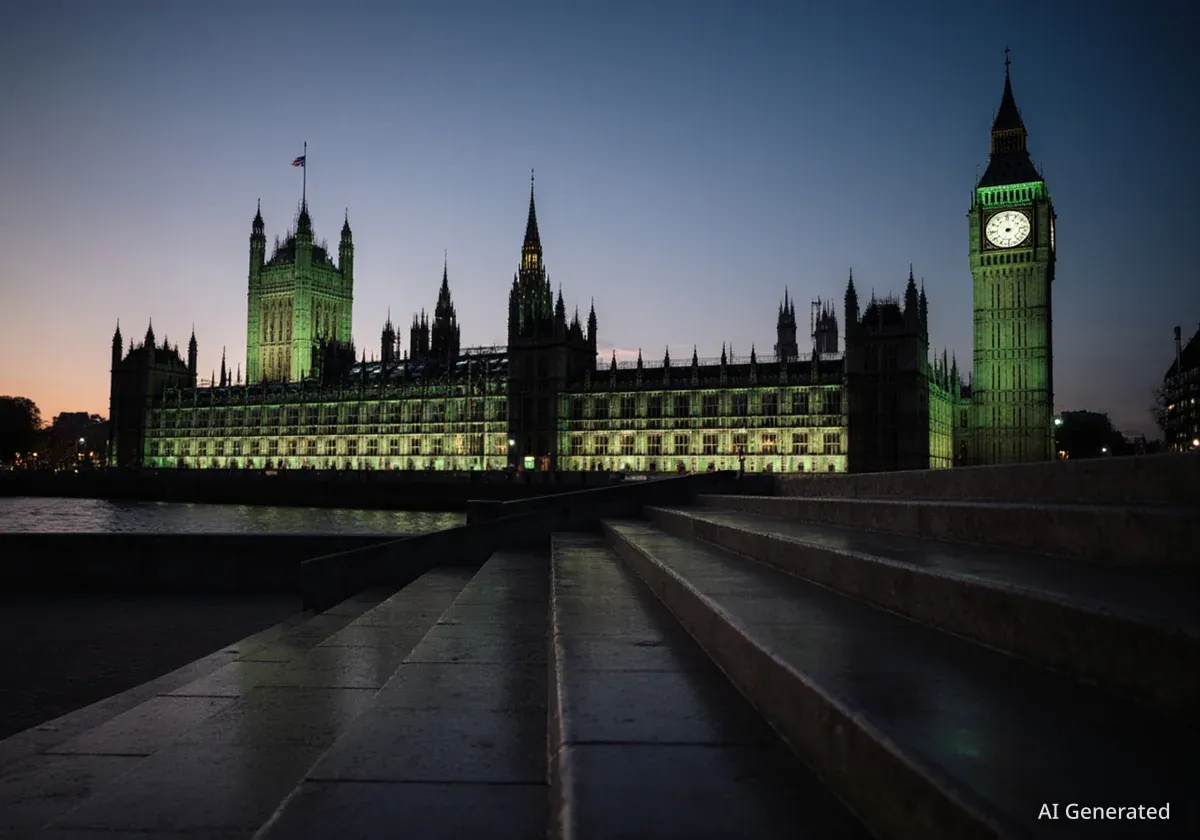Switzerland's approach to its diplomatic relations with China is drawing increasing scrutiny. Recent decisions, including the omission of Tibetan cultural references from a national light show and silence on human rights issues during high-level meetings, suggest a shift towards a more cautious stance to avoid upsetting Beijing. This trend has sparked debate about the country's commitment to its core values and an independent foreign policy.
Key Takeaways
- A planned segment on Tibet was removed from the Bundeshaus light show.
- Swiss officials remained silent on human rights during a recent meeting with China's Foreign Minister.
- Discussions on a free trade agreement with China continue despite forced labor concerns.
- A report on Chinese intimidation in Switzerland remains without concrete protective measures.
Bundeshaus Light Show Excludes Tibetan Culture
The annual light show projected onto the Bundeshaus facade, a cherished Swiss tradition, recently became a focal point of this debate. This year's show, designed as a visual world tour, initially included a segment featuring Tibetan culture. However, this element was ultimately excluded.
According to reports, parliamentary services deemed the Tibetan imagery "too political." This decision, made at the heart of Swiss democracy, has been interpreted by some as a symbol of Switzerland's preemptive deference to Beijing, especially as the country marks 75 years of diplomatic ties with China.
Fact Check
The exclusion of Tibetan imagery from the Bundeshaus light show highlights a perceived self-censorship in official Swiss circles when dealing with China.
Silence on Human Rights During High-Level Visits
The light show incident is not an isolated event. During a recent visit by Chinese Foreign Minister Wang Yi to Bellinzona, Swiss Federal Councillor Ignazio Cassis reportedly remained silent on human rights violations in Xinjiang and Tibet. This marks a notable departure from previous diplomatic practices, where such concerns were often raised.
Critics argue that this silence undermines Switzerland's moral credibility. Historically, Switzerland has prided itself on its commitment to human rights and its role as a neutral mediator. However, the current approach suggests a prioritization of economic and diplomatic stability over the vocal defense of fundamental values.
"Switzerland should know: silence is never neutral." - Selina Morell, Program Director at Voices (formerly Society for Threatened Peoples)
Trade Talks and Forced Labor Concerns
Adding another layer to this complex relationship, Switzerland is currently engaged in discussions with China to further develop their bilateral free trade agreement. These talks proceed despite widespread knowledge of forced labor practices within China, particularly involving hundreds of thousands of Uyghurs and members of other minority groups in Xinjiang, who are compelled to produce goods for the global market.
The pursuit of economic benefits while seemingly overlooking severe human rights abuses raises significant ethical questions. It challenges the integrity of Switzerland's foreign policy, particularly its commitment to ethical trade and international labor standards.
Background Information
The relationship between Switzerland and China has deepened over 75 years, encompassing economic, cultural, and political exchanges. Balancing these ties with the adherence to democratic values and human rights principles has become a central challenge for Swiss foreign policy.
Lack of Protection for Communities in Switzerland
Further concerns have emerged regarding the protection of Tibetan and Uyghur communities living within Switzerland. A report by the Federal Council detailing Chinese intimidation attempts against these groups has been available since February. Despite this, concrete protective measures for those affected are still missing.
This inaction sends a troubling signal to these communities, who often face pressure and surveillance even when residing outside China. It also raises questions about the Swiss government's willingness to safeguard its residents from foreign interference and intimidation.
- The Federal Council's report on intimidation attempts has been pending since February.
- No concrete protective measures have been implemented for affected communities.
- This situation underscores the need for a more robust defense of human rights at home and abroad.
The Call for a Principled Foreign Policy
The sum of these incidents creates a worrying picture. Official Switzerland appears to prefer avoiding conflicts before they even arise. The often-cited "dialogue policy" with China risks becoming a mere phrase if the Swiss government no longer finds the courage to clearly name grievances and advocate for fundamental values.
When human rights are ignored, moral credibility diminishes. Conceding once can signal that boundaries are flexible, leading to a loss of political credibility. If Switzerland seeks an independent China strategy, it must not be based on sensitivity to potential offenses. Instead, it must be firmly rooted in principles.
As a democracy, Switzerland has a responsibility to uphold these principles. Many observers believe that silence, in the face of human rights violations, is never a neutral position. A principled stance would strengthen Switzerland's international standing and ensure consistency in its foreign relations.




